A Complete Guide To Becoming A Google Associate Cloud Engineer
4.9 out of 5 based on 9758 votesLast updated on 3rd Jan 2024 13.9K Views
- Bookmark

Google Associate Cloud Engineer training will help you let you know everything regarding this role right from the beginner level.
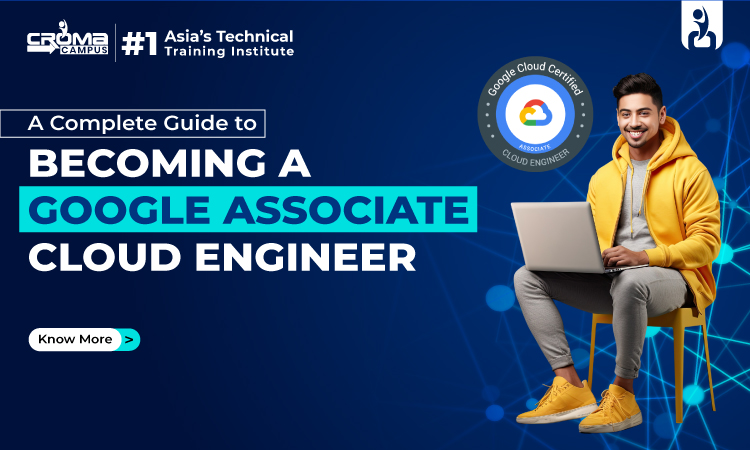
Introduction
In the ever-transforming landscape of cloud computing, Google Cloud Platform (GCP) stands out as a major player, offering robust and innovative solutions for businesses worldwide. For aspiring professionals, the role of a Google Associate Cloud Engineer serves as an excellent entry point into the exciting realm of cloud technology. To establish a successful career in this domain, you must obtain a legit Google Cloud Associate Cloud Engineer Certification from a reputed provider.
Let's now have a look at the guide aims to provide a step-by-step roadmap for individuals seeking to embark on this rewarding career path.
Why Google Cloud Associates are so much in demand?
- Understanding the Role of a Google Associate Cloud Engineer:
Before delving into the specifics of the certification process, it's crucial to have a clear understanding of the responsibilities associated with the role. A Google Associate Cloud Engineer is responsible for deploying applications, monitoring operations, and managing enterprise solutions on the Google Cloud Platform.
- Prerequisites:
Google recommends a foundational understanding of cloud computing concepts and basic proficiency in at least one programming language. Familiarity with networking, security, and the Linux command line is also beneficial.
- Gain Hands-on Experience with Google Cloud Platform:
The best way to solidify your understanding of GCP is through hands-on experience. Google Cloud offers a free tier that allows you to explore and experiment with various services. Create projects, deploy virtual machines, and interact with GCP's diverse array of tools.
- Official Google Cloud Training:
Google Cloud Course provides a variety of training resources, including documentation, tutorials, and interactive labs. The official Associate Cloud Engineer certification preparation guide is an invaluable resource for understanding the exam structure and content.
- Online Courses and Platforms:
Supplement your learning with online courses from platforms like Coursera, Udacity, and Pluralsight. These platforms offer structured courses taught by industry experts, covering the topics you need to master for the certification exam.
- Study the Exam Guide:
The Associate Cloud Engineer certification exam has a specific set of objectives outlined in the official exam guide. Use this guide as your roadmap, focusing on each topic and subtopic to ensure comprehensive preparation.
- Practice Exams:
Several online platforms provide practice exams that simulate the actual certification test environment. Taking these exams not only assesses your knowledge but also helps you get accustomed to the exam format and time constraints.
- Networking and Security Concepts:
Understanding networking and security is pivotal for a Cloud Engineer. Dive deep into concepts like Virtual Private Cloud (VPC), firewall rules, and Identity and Access Management (IAM) to ensure a well-rounded knowledge base.
- Containers and Kubernetes:
Given the growing importance of containerization and orchestration, familiarize yourself with Docker containers and Kubernetes. GCP provides services like Google Kubernetes Engine (GKE) that leverage these technologies. Enroll in an Online Kubernetes Course to master these essential tools and advance your skills in modern cloud computing.
- Review and Reinforce:
Regularly review the concepts you've learned and reinforce your knowledge by revisiting labs, documentation, and practice questions. This helps solidify your understanding and identify areas that may need further attention.
- Join the Google Cloud Community:
Engage with the Google Cloud community through forums, meet-ups, and social media. Participating in discussions and networking with experienced professionals can provide valuable insights and support.
- Schedule and Ace the Exam:
Once you feel confident in your preparation, schedule the certification exam. Be well-rested, manage your time effectively during the test, and approach each question methodically. Well, practical experience and a deep understanding of concepts are equally important.
You may also Read This:
Google Cloud Professional Certification Cost In India
Google Cloud Platform Components
GCP Associate Cloud Engineer Certification Price
Prerequisites
-
- Understand the core GCP services, including Compute Engine, App Engine, Cloud Storage, and BigQuery.
- Know how to use GCP Console and Command-Line Interface (CLI) for managing resources.
- Familiarity with deploying and managing virtual machines (Compute Engine) and platform services (App Engine) on GCP.
- Knowledge of Virtual Private Cloud (VPC) setup and configuration.
- Understanding of firewall rules, load balancing, and network routing in GCP.
- Proficiency in working with Cloud Storage for object storage needs.
- Understanding of different storage classes and options for data retrieval.
- Basic knowledge of Cloud SQL and NoSQL databases such as Cloud Firestore and Cloud Bigtable.
- Understanding database deployment, configuration, and maintenance on GCP.
- Knowledge of Identity and Access Management (IAM) for controlling access to GCP resources.
- Understanding of security best practices, encryption, and key management.
- Ability to set up monitoring and logging using Stackdriver.
- Understanding how to analyze logs and set up alerts for resources.
- Basic scripting skills using languages like Python or Shell for automation.
- Knowledge of Deployment Manager or Terraform for infrastructure as code.
- Understanding of containerization concepts using Docker.
- Familiarity with Kubernetes orchestration, especially Google Kubernetes Engine (GKE).
- Ability to analyze and troubleshoot issues in a cloud environment.
- Critical thinking skills to identify and resolve problems efficiently.
- Clear communication skills to convey technical concepts to both technical and non-technical stakeholders.
- Ability to document processes and solutions effectively.
- Willingness to learn and adapt to new technologies and tools.
- Stay updated with the latest developments in cloud computing and GCP.
- Efficiently manage time, prioritize tasks, and meet project deadlines.
- Handle multiple tasks concurrently without compromising quality.
- Understand and prioritize customer requirements.
- Provide solutions that align with the client's goals and needs.
By developing a strong foundation in these technical and soft skills, you'll be well-prepared to excel in the role of a GCP Professional Cloud Architect and contribute effectively to cloud-based projects and solutions.
Related Courses:
Note: Croma Campus is a top EdTech provider offering an AWS Course Online. Explore course details, fees, and duration to kickstart your cloud computing career with AWS expertise.
Conclusion
Becoming a Google Associate Cloud Engineer requires hands-on experience, formal training, and continuous learning, all achievable through Cloud Computing course online. By following this comprehensive guide, you'll be well-prepared to embark on a fulfilling career in cloud technology, contributing to the ever-growing world of Google Cloud Platform. So, do acquire proper training in this course, if you turn into a skilled Google Associate Cloud Engineer. A legit training will help you let you know everything regarding this role right from the beginner level.
Subscribe For Free Demo
Free Demo for Corporate & Online Trainings.
Your email address will not be published. Required fields are marked *
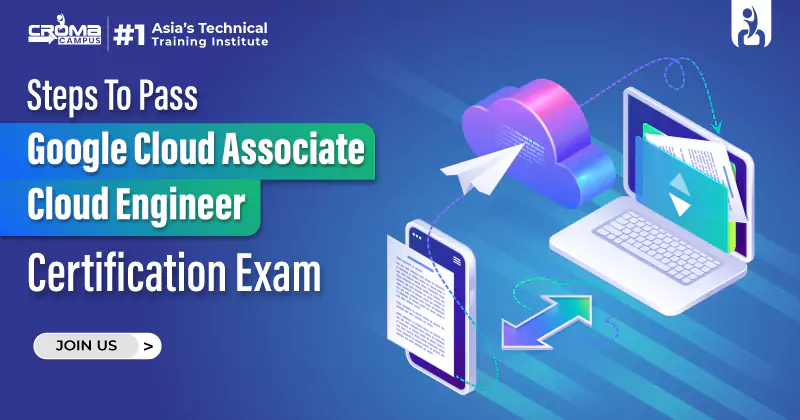
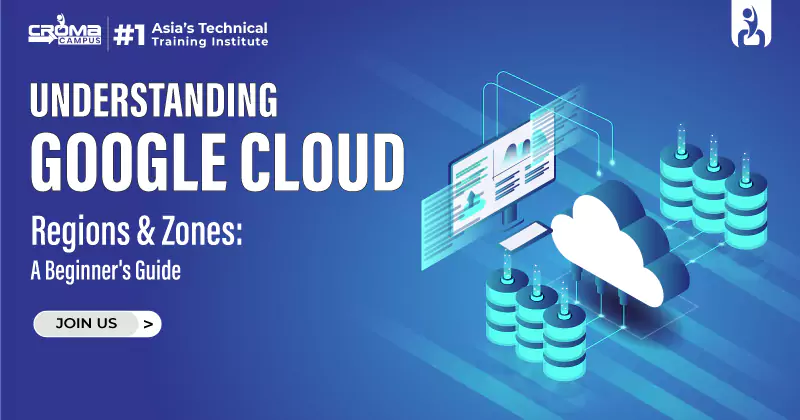


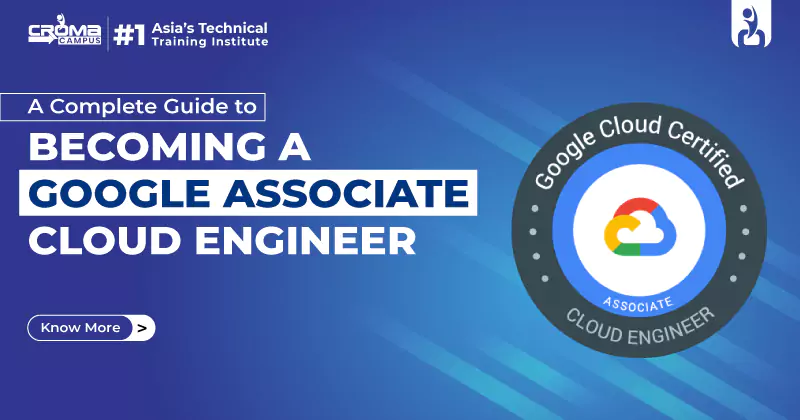
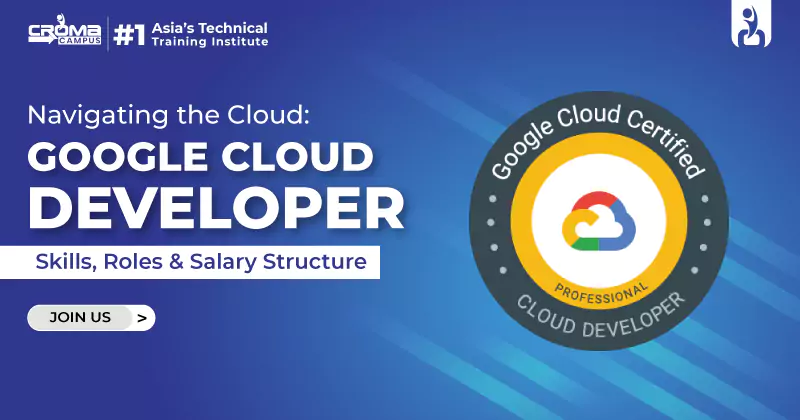
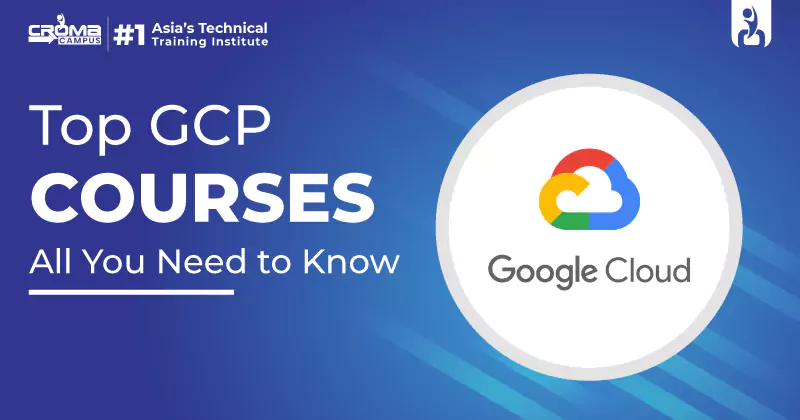
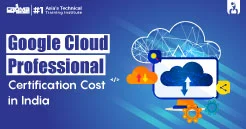
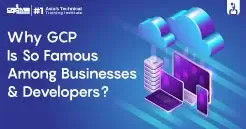
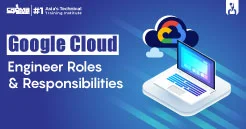
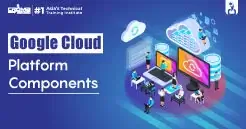











 Master in Cloud Computing Training
Master in Cloud Computing Training